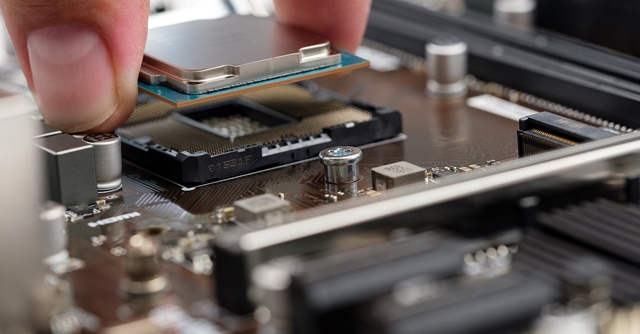
AMD, IIT Bombay partner to support semicon start-ups in India


Global chipmaker AMD announced on Monday a partnership with the Society for Innovation and Entrepreneurship (SINE), an incubator at the Indian Institute of Technology (IIT)-Bombay, to promote semiconductor start-ups in India.
Under this partnership, AMD will provide grants to IIT-B incubated startups working on developing energy-efficient Spiking Neural Network (SNN) chips. The startups have to devise ways to reduce energy consumption utilised by conventional neural networks significantly.
Jaya Jagadish, Country Head, AMD India, said, At AMD, our goal is to reduce energy costs and increase efficiency across all our product lines. We aim to deliver a 30-fold improvement in energy efficiency for AMD processors and accelerators powering HPC and AI training by 2025. This means we are increasing the energy efficiency of compute nodes at a rate that is significantly faster than the aggregate industry-wide improvement made during the last five years. We continuously work with industry bodies and academia to support initiatives that help drive innovation in this field.
“As India looks to execute a comprehensive semiconductor strategy, it is important to nurture, build and grow startups in this space. As design cycles are long and cost of entry high in the semiconductor design area, it is SINE's endeavour to foster and create strong, product-focussed, cutting-edge semiconductor design startups by addressing gaps in the industry," said Shaji Varghese, CEO, SINE- IIT Bombay.

The first grant was given to Numelo Technologies for developing SNN chips using ultralow power quantum tunnelling on silicon on insulator (SOI) technology, as Udayan Ganguly, Director, Numelo Tech said, the company’s focus is to offer extended battery life, enhanced data privacy, and feature a versatile architecture capable of facilitating sound, image, and video recognition, has led us to develop a host of innovations at the technology, circuit and systems architecture and algorithms/software level.
To be sure, last month IT services major Tata Consultancy Services entered a partnership with the Indian Institute of Technology-Bombay, to develop what it said is India’s first quantum diamond microchip imager. The technology is a sensing tool that will hold the potential to unlock new levels of precision in the examination of semiconductor chips, reduce chip failures and improve the energy efficiency of electronic devices, the IT firm said. Over the next two years, experts from TCS will work with the Department of Electrical Engineering of IIT-Bombay to develop the tool.
Needless to say, semiconductor chips are an essential component of all modern electronic devices. Despite being a nascent sector, India’s semiconductor sector is anticipated to become a $150 billion market by 2030, expanding at a CAGR of 24% from 2023 to 2030. The country’s semiconductor startup ecosystem is also growing rapidly. According to Tracxn, a market research firm, 38 Indian semiconductor startups have raised seed or Series A funding. The industry is expected to create over 300,000 jobs in India by 2026.

Companies such as Tessolve Semiconductor, Sasken Communication, InSemi, Saankhya Labs, Advantech and Moschip are among the names dominating the startup space. Last week, IT giant Accenture acquired two chip design startups — Excelmax Technologies, and Cientra Techsolution to strengthen its Semicon business.
